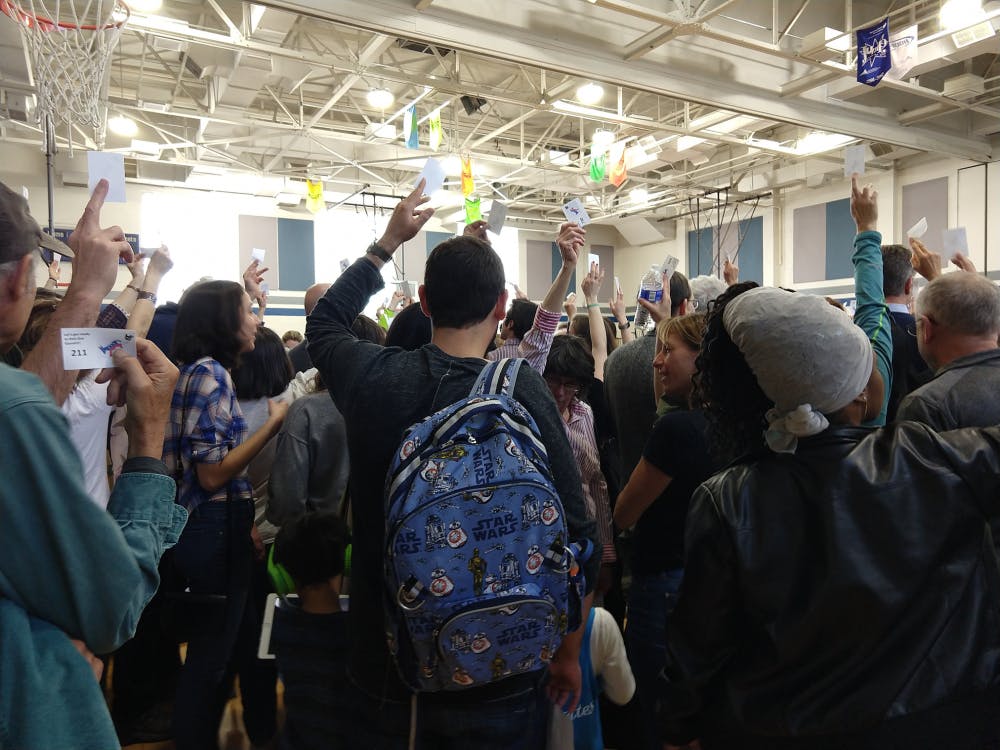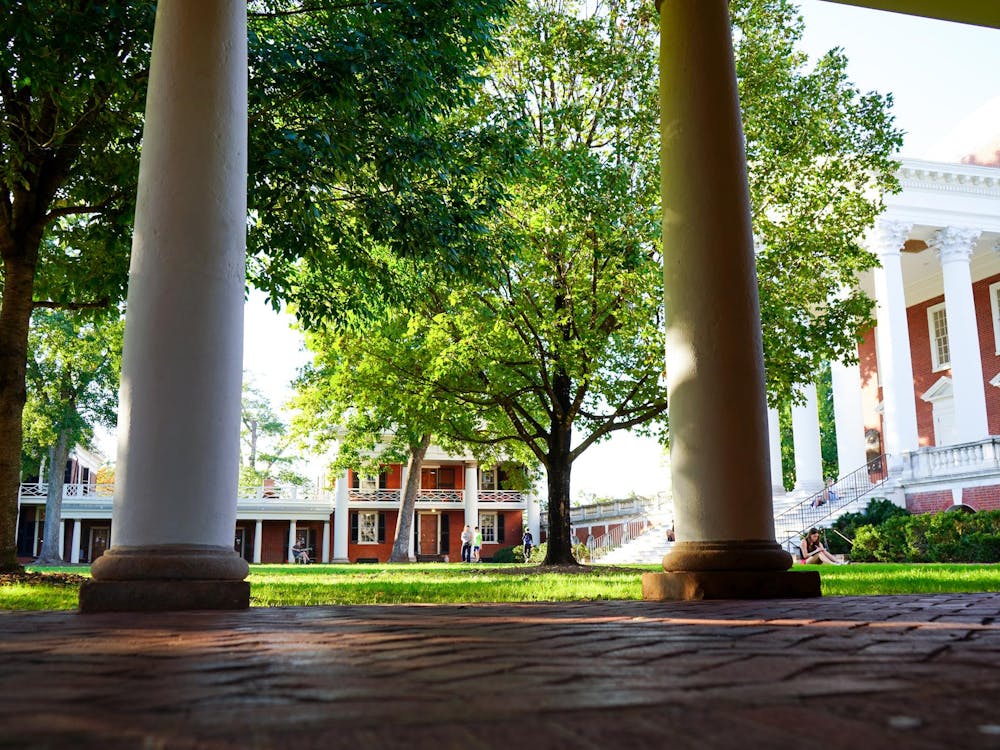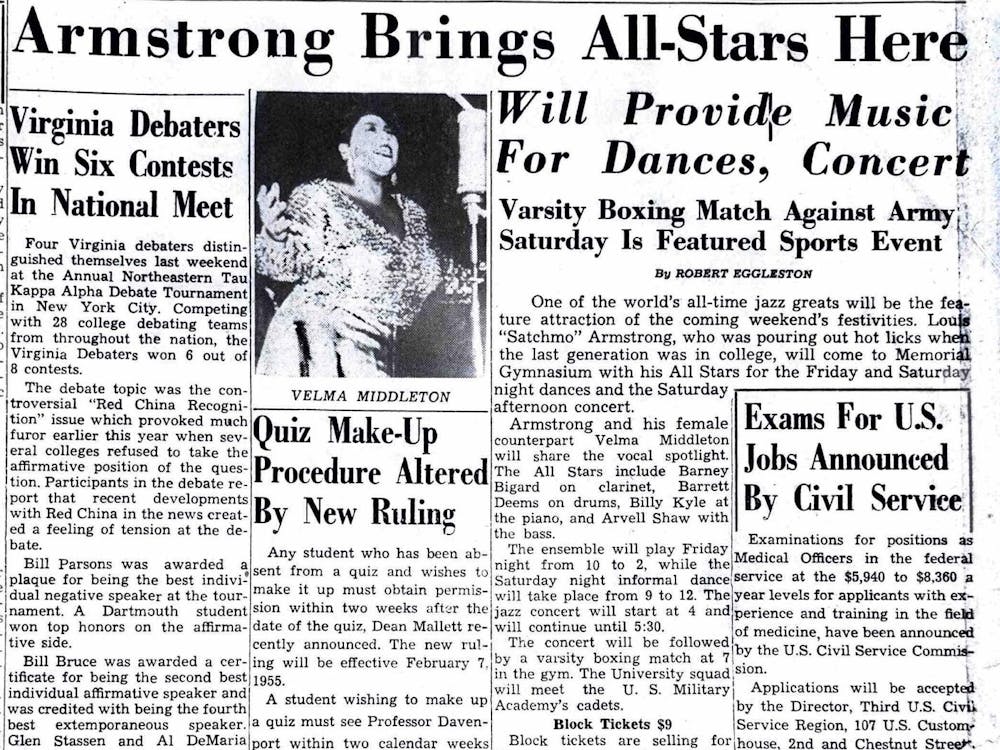Citizens gathered at Burley Middle School Saturday afternoon for the City of Charlottesville’s Democratic caucus to elect delegates to select the party’s nominee in the upcoming Fifth District congressional race. According to district-wide tallied results following the caucus, Leslie Cockburn has now won 134 elected delegates, which is more than half of the total 250 delegates needed to secure her the nomination at the Democratic convention May 5. Andrew Sneathern finished with 54 delegates and Roger Dean Huffstetler with 43.
In the Charlottesville City caucus, Cockburn earned seven delegates, while Sneathern had nine and Huffstetler had three.
The Charlottesville caucus was one of the final Democratic caucuses to take place in April to determine who of the three remaining Democratic congressional nomination candidates for the Fifth District — Cockburn, Sneathern and Huffstetler — will become the official Democratic nominee. After the caucus results, the official nominee will be selected May 5 in Farmville at a formal convention. This nominee will run against Republican incumbent Rep. Tom Garrett in the November congressional election for the Fifth District.
The caucus itself took place in the gymnasium of the middle school. Four sets of bleachers were placed at the corners of the room, each with a sign signifying which candidate the respective bleachers represented support for — delegates and residents were instructed to sit in the area of the gymnasium attributed to their favored candidate, with the fourth set of bleachers available for those who were undecided.
At final tally, there were 752 voters present at the caucus. A 20 minute block of speeches occurred after general announcements, during which Sneathern, Cockburn and a representative for Huffstetler spoke on behalf of their campaigns. After the speeches concluded, the undecided delegates were given five minutes to choose a candidate and join that respective bleacher group.
Once each group was finalized, the delegates all officially cast their votes by turning in “token” cards for their candidate.
The doors to the caucus opened at 1:15 p.m., with a flow of interested civilians entering the building remaining constant until the doors closed at 2:15 p.m.
Cassie Ardern, a fourth-year College student and staffer for Sneathern’s campaign who was at the event, commented on the mindset of many of the people showing up to caucuses.
“Because there’s an election every year there’s a lot of burnout instead of turnout,” Ardern said. “We have noticed a surprising amount of people who have come to events and say, ‘I’ve never done this before, I’ve never participated before, but I feel like something’s at stake.’”
Ardern also addressed how motivated the Democrats she had seen were for this caucus, regardless of their candidate preference.
“After 2016 it’s been amazing that there’s four great candidates who came out and participated — people are really fired up,” Ardern said. “I think this election is special in that people are motivated … what’s cool about this is that we’re all on the same page and we all have the same goals for November.”
Five candidates originally ran for the fifth District Democratic nomination, though Lawrence Gaughen ran only briefly and dropped from the race March 9. Ben Cullop announced April 17 he was dropping out of the race after receiving no delegate votes in caucuses in Albemarle and other counties. Despite his dropping from the race, Cullop said in a statement he looks forward “working hard for whomever the nominee is, and a Democratic victory in November.”
Conor Emser, a staffer for Huffstetler, also spoke about the turnout for Democratic elections.
“We’re always excited to see Democrats taking action and vote for who they want to see in the caucus,” Emser said. “People are excited, most definitely. I think you can just look around and see everyone excited to be here.”
Although he expressed satisfaction with the Charlottesville turnout for the caucus, Emser also spoke about how having a voting format in this manner can hurt people’s ability or motivation to vote. While a primary is a district-wide voting process where residents vote privately on a selected day, caucuses are staggered by district and date, where selected delegates vote for their preferred nominee.
“This process actually disenfranchises a lot of folks,” Emser said. “It leaves a lot of folks out if they have kids or jobs. I think that’s another thing that’s a little disheartening with the caucus process, about eight out of ten phone calls you have, those people can’t go to their specific caucus.”
Sam Finkel, a third-year Batten School student and University Democrats vice president, attended the event as a voter and acknowledged how the caucus process can be unfamiliar or difficult for citizens to engage with.
“I think there a lot of things, especially related to the process that kind of hinders involvement and promotes not necessarily apathy, but lack of involvement,” Finkel said, going on to comment that he knew of people who wanted to come but had other obligations.
Despite ways in which the caucus process may limit the potential for voter participation in some instances, many volunteers and attendees still expressed satisfaction with the level of turnout and involvement taking place.
“I think voter turnout is spectacular,” said Patty Haling, a campaign staffer for Cockburn. “Even on a busy Saturday … we’re seeing a great turnout for all the candidates. It’s very exciting to see this much energy and enthusiasm.”
Finkel was also optimistic about the crowds and the motivation of those who were there that afternoon.
“The energy is great,” Finkel said. “In a primary you wouldn’t have nearly the number of volunteers … because primaries have so many precincts and happen all day … [The caucus] is just kind of all at once, and people are very very enthusiastic about being here, which is great to see.”







